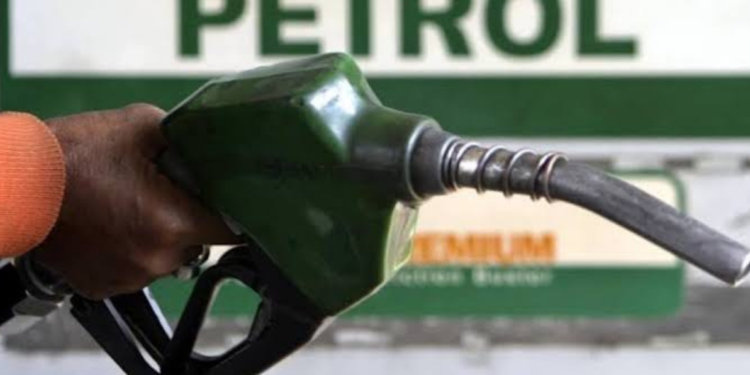The Nigerian National Petroleum Company Limited (NNPCL) has supplied a total of 48.6 million barrels of crude oil to the Dangote Petroleum Refinery over the past 10 months.
This supply is part of a continuing transaction aimed at supporting the refinery’s operations, which has an installed capacity of 650,000 barrels per day.
However, concerns have emerged regarding the volume of crude oil delivered so far, as it falls short of what the refinery is capable of processing.
The official data on the crude oil deliveries, as obtained by Journalists, revealed that the NNPCL supplied 3.4 million barrels (mb) in December 2023, followed by 3.5 million barrels in February 2024.

Further breakdowns of the data show that 3.3 MB each were delivered in March and April 2024, while May saw the delivery of 3.0 MB.
In June and July, deliveries surged to 5.1mb for each month, followed by 4.8mb in August and 5.6mb in September 2024.
As of October 2024, the transaction had recorded a total delivery of 11.7mb, with expectations for further deliveries through the remaining months of the year.
Despite the seemingly large volume of crude oil deliveries, sources close to the Dangote Refinery have expressed concerns that the amount of crude oil supplied by the NNPCL remains insufficient when compared to the refinery’s maximum refining capacity.
With the capability to process 650,000 barrels per day, the refinery is currently operating below its full potential due to the limited volume of crude oil received from the NNPCL.
The NNPCL has yet to publicly disclose the exact crude oil requirements for Nigeria’s refineries, including the Dangote Refinery, for the final quarter of 2024 (October – December).
However, during the second quarter of 2024 (Q2’24), the federal government placed the overall crude oil demand for Nigeria’s refineries, including Dangote Refinery, at 597,700 barrels per day.
This figure represents an increase of 114,700 barrels per day when compared to the demand of 483,000 barrels per day in the first half of the year.
From these estimates, it appears that the NNPCL has booked the crude oil needs of Dangote Refinery at less than 50% of its installed production capacity.
Industry analysts have pointed out that for the refinery to operate at its optimal level, it will need a more substantial and consistent supply of crude oil.

As the year progresses, stakeholders are closely monitoring the situation to see whether the volume of crude oil deliveries will increase to meet the refinery’s full processing potential.
Decline in Petrol Imports;
Meanwhile, the importation of Premium Motor Spirit (PMS), commonly known as petrol, experienced a significant year-on-year (YoY) decline.
According to the National Bureau of Statistics (NBS), the volume of PMS imported in 2023 fell by 12.6% to 20.29 billion liters, compared to 23.24 billion liters recorded in 2022.
This decline in petrol imports reflect broader changes in the energy landscape as domestic production and other factors influence the country’s fuel supply.
The NBS, in its “Petroleum Products Distribution Statistics for 2023” report, noted that the distribution of PMS via trucks also saw a YoY decrease of 16.9%. In 2023, the volume of PMS trucked out amounted to 20.22 billion liters, a decrease from 24.35 billion liters in 2022.
This drop in both the importation and distribution of petrol signals shifting dynamics in the Nigerian fuel market, possibly linked to efforts aimed at boosting domestic refining capacity.
Surge in Diesel and Kerosene Production;
In contrast to the decline in petrol imports, the importation and production of Automotive Gas Oil (AGO), also known as diesel, saw a notable increase in 2023.
The NBS report indicated that the volume of AGO imported in 2023 rose to 4.94 billion liters, a significant increase of 23.66% compared to the 4.00 billion liters imported in 2022.
This rise in diesel imports is likely due to increased demand for diesel, which is widely used for transportation and industrial purposes in Nigeria.
Furthermore, domestic production of diesel also witnessed growth. In 2023, Nigeria produced 109.39 million liters of AGO locally, representing a 6.76% increase compared to the 102.47 million liters produced in 2022.
The growth in local production reflects efforts to enhance Nigeria’s self-sufficiency in fuel supply, even as the country continues to rely heavily on imports for its petroleum needs.
Household Kerosene (HHK), another critical petroleum product, also saw significant growth in domestic production.
In 2023, the volume of HHK produced locally rose by 56% YoY, reaching 69.7 million liters, compared to 44.68 million liters in 2022.
The increased production of kerosene is a welcome development, particularly for households that rely on kerosene for cooking and other domestic purposes.
Despite these improvements in the production of diesel and kerosene, the local production of petrol in Nigeria came to an end in 2018.
The last recorded production of PMS was in 2018 when 128.08 million liters were produced domestically.
Since then, Nigeria has relied entirely on imports to meet its petrol demand, making the decline in importation a critical issue for the country’s energy security.
The NBS report also highlighted key statistics regarding the importation and production of petroleum products in 2023.
The data showed that Nigeria imported 20.30 billion liters of PMS in 2023, representing a 13.77% decrease from the 23.54 billion liters imported in 2022.
On the other hand, 4.94 billion liters of Automotive Gas Oil were imported in 2023, marking an increase of 23.66% compared to the 4.00 billion liters imported in the previous year.
While Nigeria has made strides in increasing the production of certain petroleum products such as diesel and kerosene, the overall energy landscape remains complex.
The decline in petrol imports and the ongoing challenges in crude oil supply to the Dangote Refinery suggest that more work needs to be done to ensure a stable and efficient fuel supply in the country.































